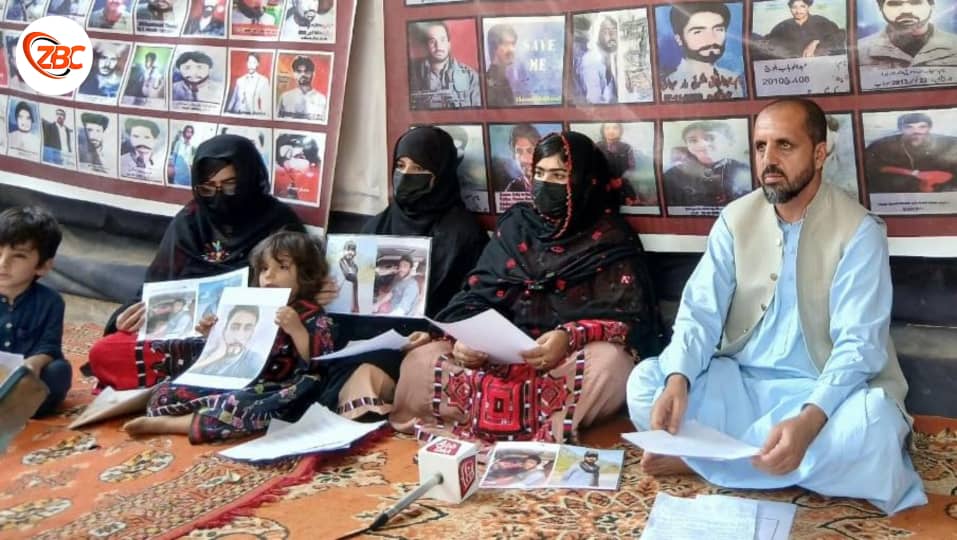
Quetta: The sister of Sagheer Ahmed, who was subjected to enforced disappearance by Pakistani forces, held a press conference today at the camp for missing persons in Quetta. She said, “I, the sister of Sagheer Ahmed, stand before you today for the second time at this press club. My purpose is clear and simple: the safe recovery of my brother Sagheer Ahmed and cousin Iqrar Baloch.”
She stated that on the night of June 11, 2025, her brother and cousin were detained at the Ormara checkpoint by Pakistani security personnel and forcibly disappeared. “It has been over two months since their abduction. During this long period, no FIR has been registered, no court appearance has been made and no state institution has provided us with any information.
The sister recalled that this was not the first incident. “My brother was also disappeared once before, on November 20, 2017, after appearing for an exam at Karachi University. He remained missing for nearly a year, subjected to torture and inhuman treatment at secret detention centers. Those wounds are still fresh in our hearts and minds.”
She further highlighted that Sagheer Ahmed is an educated young man who completed higher studies at Karachi University and Sargodha University. After returning to his hometown Awaran to serve his community, he faced unemployment and moved to Turbat with his cousin Iqrar Baloch to earn a living through labor. “Their only ‘crime’ was working hard to earn a livelihood and being Baloch,” she said.
During the press conference, she also raised concern about Iqrar Baloch’s health, stating he suffers from kidney disease and is in urgent need of medical care. “Is such treatment of sick and innocent individuals acceptable in a democratic state? The Constitution of Pakistan promises equal rights to every citizen. My question is: are Baloch also included in that Constitution? If yes, then why are our youth disappeared without being presented before a court?”
She stressed that they do not support any unlawful activity. “If Sagheer Ahmed or Iqrar Baloch are accused of anything, they should be presented in court, given legal counsel and tried through a transparent judicial process. That is what the Constitution demands, what human rights principles dictate and what the UN Convention on Enforced Disappearances requires.”
She further lamented the silence of institutions: “When courts remain silent, parliament is indifferent and media is busy with other priorities, where should a helpless sister go? When the state itself becomes a threat to its citizens, whose door should we knock on? Silence is a crime and we cannot be part of that crime.”

